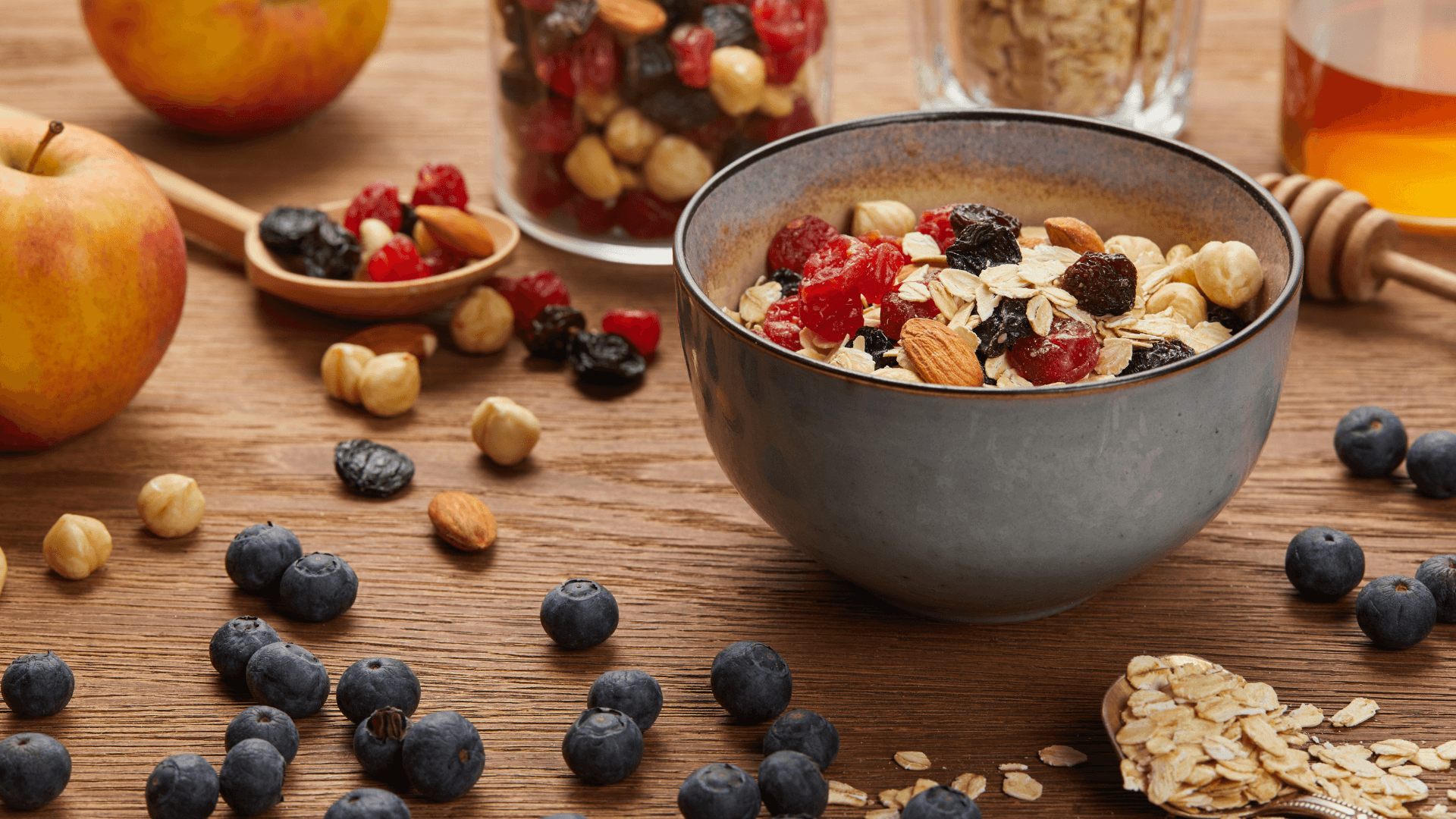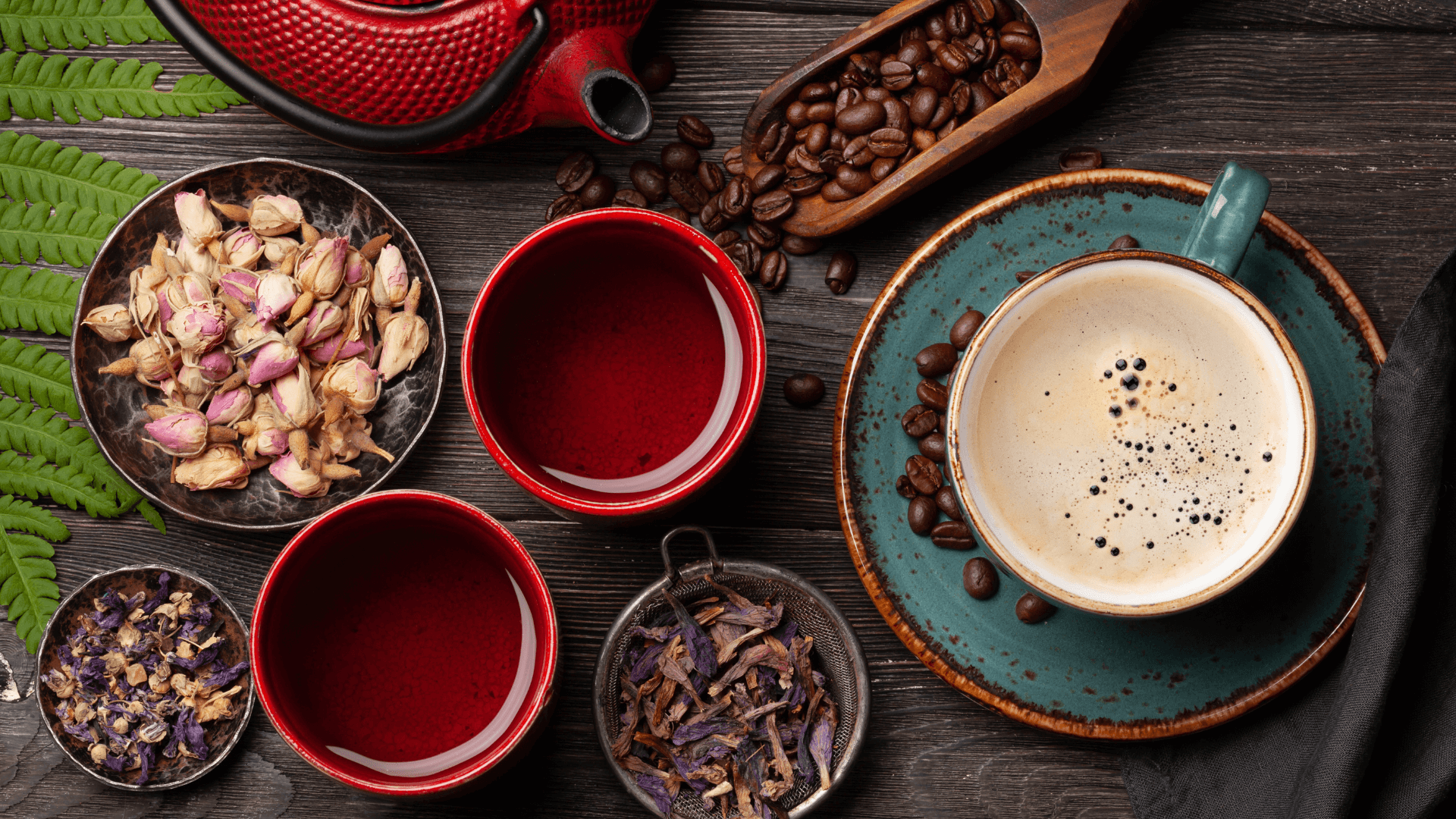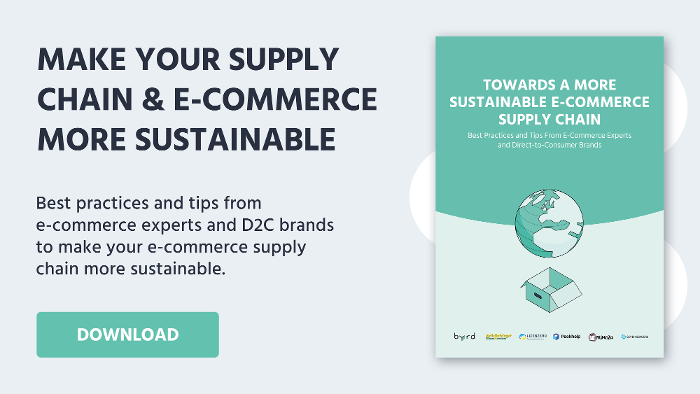Navigating Italy's fulfillment landscape in the food and beverage industry
Table of Content
The Italian food e-commerce market is projected to reach US$1,319.8 million by 2024 and thanks to the significant rise in the food and beverage sector, Italians' culinary exploration extends beyond traditional food and beverage.
In this article, we invite you to explore the popularity of certain food and beverage products, evolving trends, and consumer preferences. Finally, you can discover why a customized fulfillment approach can be crucial for online businesses looking to increase sales.
The food and beverage industry in Italy is growing
In 2023, Italy displayed a notable preference for online food and beverage shopping, experiencing a 7% increase compared to 2022, resulting in a market value surpassing 1.3 billion euros.
As the trend of online sales continues to surge, the food sector emerges as a highly dynamic segment within Italy's e-commerce market. Already back in 2019, approximately one-third of Italian shoppers purchased food and beverages online, with nine million consumers opting for e-commerce channels to buy groceries. By 2023, this trend continued to rise, fueled by three primary factors:
- Italian consumers seek the convenience of doorstep delivery for their products.
- Time efficiency plays a crucial role in online shopping; the possibility to order and pay with just a few clicks increases the convenience of the shopping experience
- Click-and-collect options are gaining traction, exhibiting steady monthly growth since April 2023 compared to the previous year.
What do Italian customers look for when buying food and beverages online?
The new generation of Italian consumers is looking for innovation, uniqueness, and appealing narratives beyond traditional food. There is an increasing focus on sustainability, shorter supply chains, and the consumption of natural foods and organic cuisines. This trend reflects a shift in consumer preferences towards products that not only have superior quality but also demonstrate environmental awareness and social responsibility.
To fulfill this expectation, whether consumers are purchasing local or international food products, one of the factors that influence their purchase decision the most is the PDO (Protected Designation of Origin) and PGI (Protected Geographical Indication) certifications. 28% of consumers say they pay considerable attention to PDO/PGI designations when making purchases, a percentage that rises to 32% at the time of consumption.
These certificates, among numerous others, like Fair Trade Certification or The Rainforest Alliance Certified provide transparency across the supply chain, a growing concern for consumers seeking insight into the origins and production practices of their purchases.
When it comes to food, fast delivery is essential, as it ensures both customer satisfaction and product quality. Italian shoppers expect to receive their purchases within 3 to 5 days.
The fulfillment services your food products need
When selecting fulfillment services for your Italian food and beverage products, it's essential to prioritize aspects that maintain product quality, authenticity, and customer satisfaction.
Temperature-Controlled warehousing: Without proper storage, bacteria can proliferate and spoil your food. Many food products possess delicate flavors and textures that may degrade if stored at incorrect temperatures. Temperature-controlled warehousing guarantees that these products retain their freshness and taste until they reach the customer.
Specialized packaging: Food products in Italy and elsewhere frequently need specialized packaging to maintain their quality and authenticity while in transit. The transportation of food and beverage items encompasses numerous handling processes that may pose risks of damage or contamination. Through specialized packaging, an additional protective layer is provided, thereby mitigating the likelihood of breakage, spillage, or contamination during shipping.
Techniques such as vacuum sealing or airtight packaging are essential to preserve the freshness of these products, as they minimize their exposure to external elements.
Customs compliance: Different countries have various regulations and standards regarding food safety, labeling, and importation. Ensuring customs compliance guarantees that your food and drinks products for the Italian market meet these requirements or avoid delays.
Compliance with customs regulations is a legal requirement when importing goods into foreign markets. Failure to comply with these regulations can result in legal consequences, including fines, penalties, or even the seizure of goods.
Shipping on time: The right parcel delivery company in Italy must be experienced in the handling of delicate food items, ensuring that your products arrive at their destination intact and in optimal condition. Timeliness is essential, especially for fresh food items. Selecting a parcel company known for reliable and efficient delivery ensures that your products reach your Italian customers promptly, enhancing customer satisfaction and loyalty.
By prioritizing these aspects, you can ensure that your Italian grocery products are handled and delivered with the care and attention they deserve, maintaining their quality and authenticity throughout the fulfillment process.
Attractive food and beverage categories in Italy's e-commerce
Below, we present a list featuring some of the principal categories within the sector.
Food supplements
This sector is of considerable importance within the overall nutrition e-commerce market in Italy. The emphasis on health and wellness among Italian consumers is driving a growing demand for food supplements. In 2020, Italy led European countries in per capita spending on dietary supplements, with an average of €63.6 per person. Around 80% of Italians incorporate dietary and nutritional supplements into their daily routine.

Italians recognize the importance of maintaining a balanced lifestyle and use supplements to improve their nutritional intake and overall well-being. Food supplements in e-commerce are primed for substantial expansion, expected to reach a value of US$190.8 million by 2024.
Apart from vitamins, dairy products high in protein are gaining popularity for health and fitness purposes. A majority of 58% of dairy product consumers prioritize protein content in their purchases.
Baby food
In Italy, parents tend to prioritize natural ingredients and teach healthy eating habits to their children from an early age, which influences the range of products available in the baby food market. Consequently, infant formula, infant rice cereals, and baby food flour are among the most popular items in the sector.

The baby food sector in Italy was valued at EUR 636.6 million in 2022, with projections indicating a growth to US$1.43 billion by 2024. Italian parents appreciate the convenience and reliability of online baby food stores. Yet, it is worth mentioning that specialized marketplaces in this category also are of great popularity, with products from platforms such as pharmacies and drugstores. The main reason for buying from pharmacies online is attributed to their reputation for reliability and credibility in offering quality products.
Cereals, pastries, muesli
Breakfast holds significant cultural and culinary importance for Italians, often referred to as "la prima colazione" or "la colazione." It is considered the most important meal of the day, setting the tone for one's energy, and is characterized by specific products. Consumer tastes are leaning towards healthier options, with a growing inclination for nutritious breakfast products such as muesli, granola, and cornflakes. 44% of breakfast consumers prefer their morning meal entirely sweet, with biscuits, croissants/muffins, rusks, and cereals ranking as the most consumed products.

The breakfast cereals market is expected to reach a value of US$1.11bn in 2024. Italians value the variety that these products can offer, such as cereals or granola bars made from grains such as wheat, corn or oats.
While it may seem that most people prefer their products fresh, the reality is that the majority of breakfast items consumed are packaged, with only 1 in 10 consumers choosing homemade products, either predominantly or entirely.
Ready-to-drink
This market is named after the practice of selling packaged beverages ready for immediate consumption. Customers buy their products online and receive them directly at their doorstep, with only one more step to prepare them for consumption. In this specific section, our attention is directed towards coffee and tea, both significant beverages for beginning the day or relaxing in the afternoon. Additionally, in a survey "Groceries & beverages purchased online by category," coffee and tea stood out as the top two preferences among Italian consumers.

In the tea market, the user base is projected to reach 6.3 million users by 2029. While hot infusions remain a popular method of enjoying tea, and even though hot tea is popular in the country, in Italy iced tea takes the lead as the most consumed non-alcoholic beverage, with each person consuming over nine liters per year, marking one of the highest rates in Europe.
Although Italy may not have any coffee plantations, coffee is the second most popular beverage in the country. Projections indicate that the Italian coffee e-commerce market will reach $68.9 million by 2024, making up 54.9% of the hot beverage e-commerce market in Italy. Among the preferred methods of purchasing coffee are whole beans, ground coffee, coffee capsules, and instant coffee.
Fulfillment solutions for your products in Italy with byrd
byrd fulfillment solution can be your ideal 3PL solution for food and beverage fulfillment in the e-commerce sector. Our specialized services include temperature-controlled warehousing, ensuring that your products maintain their freshness and quality throughout the fulfillment process. With our warehouses certified for organic products, we ensure compliance through regular and stringent controls. All necessary precautions are taken to prevent contamination or mixing with other products.
We adhere to HACCP requirements at every stage of the supply chain, guaranteeing the integrity of your products. Our expertise extends to handling dangerous goods in the food and beverage industry, accurately identifying and segregating them to ensure compliance and prevent risks during shipping.
With our logistics services, your food and beverage products are in good hands. Our focus on quality assurance ensures that your products reach your customers in perfect condition, satisfying even the most discerning consumers who prioritize authenticity and taste.
